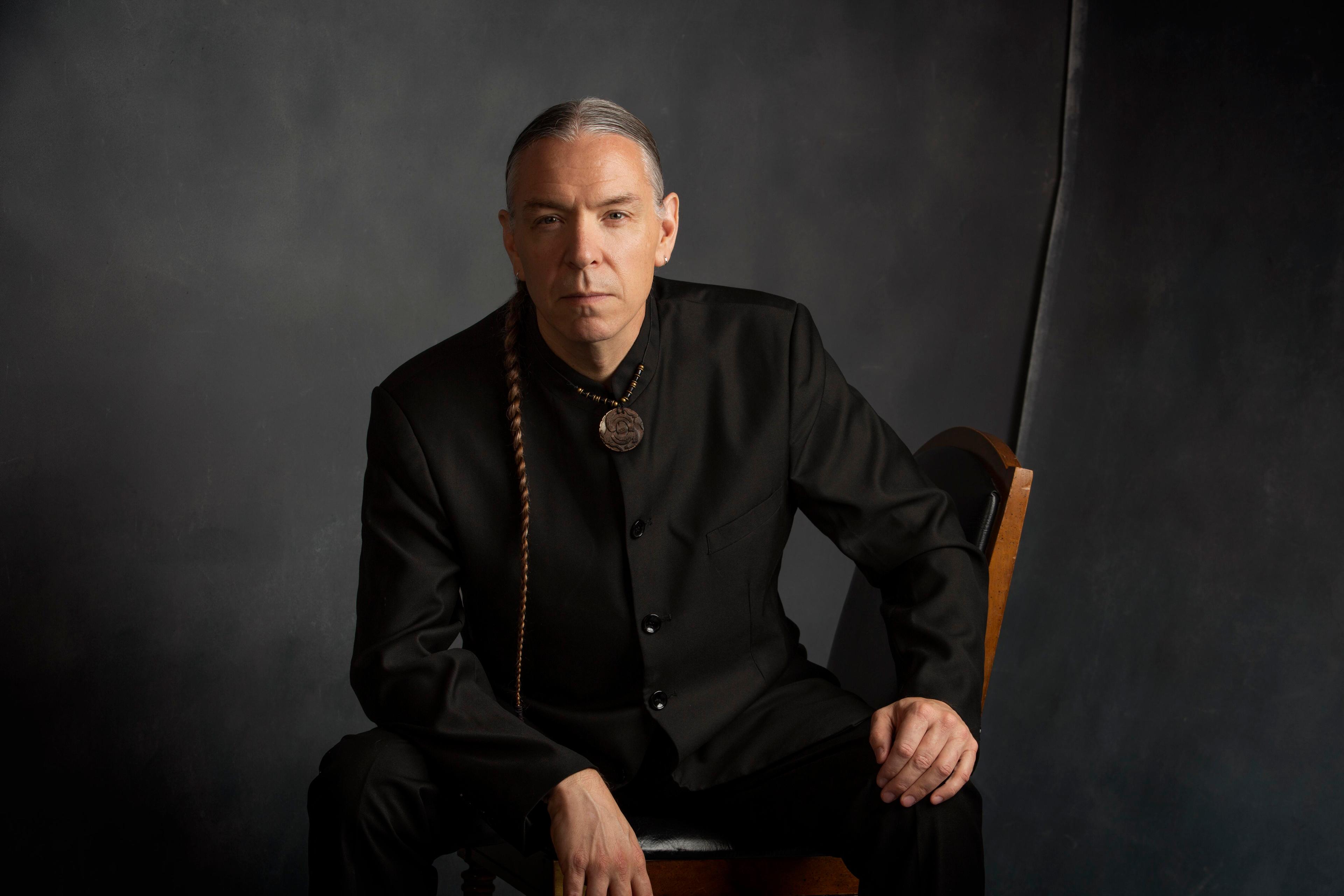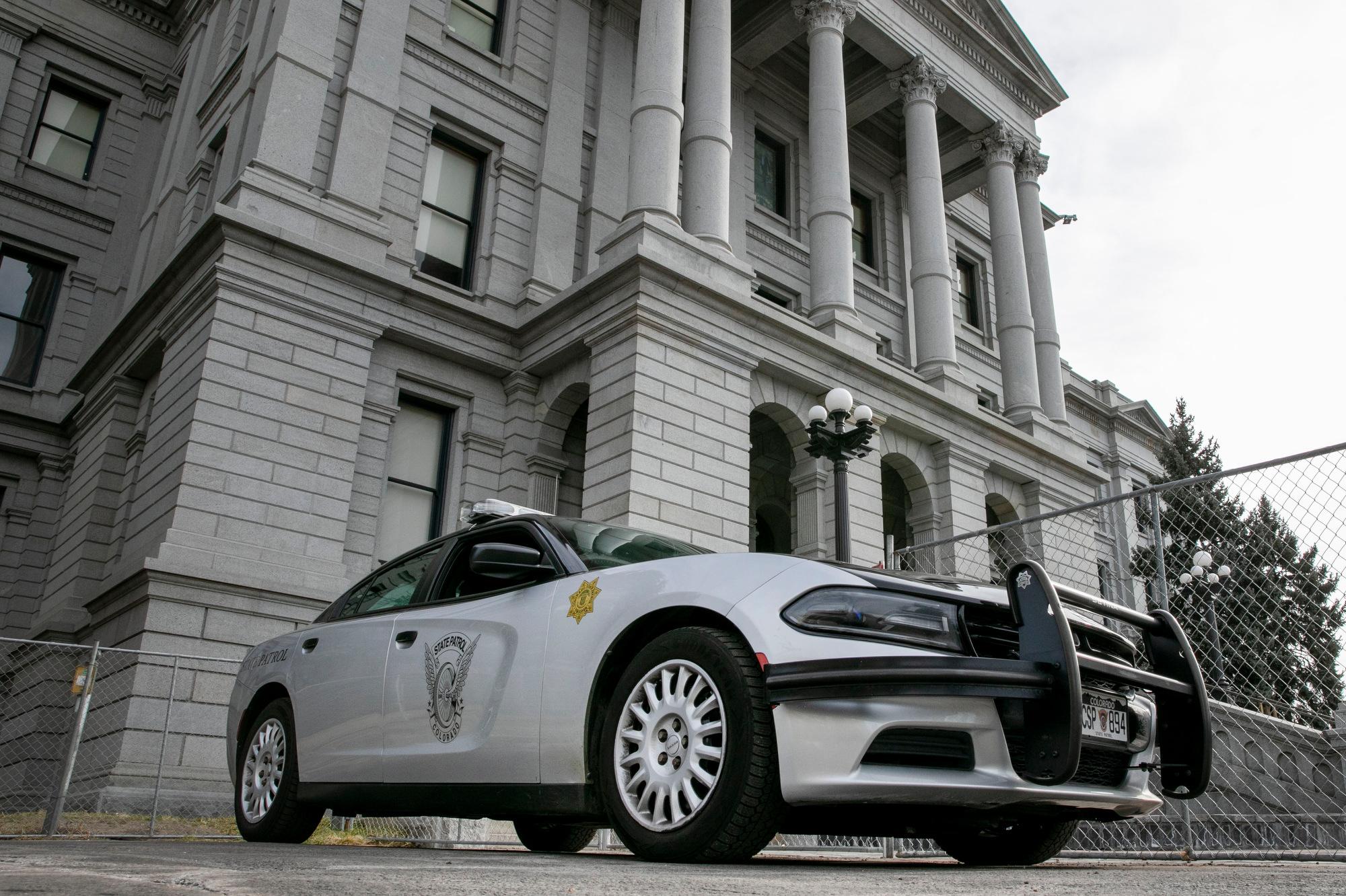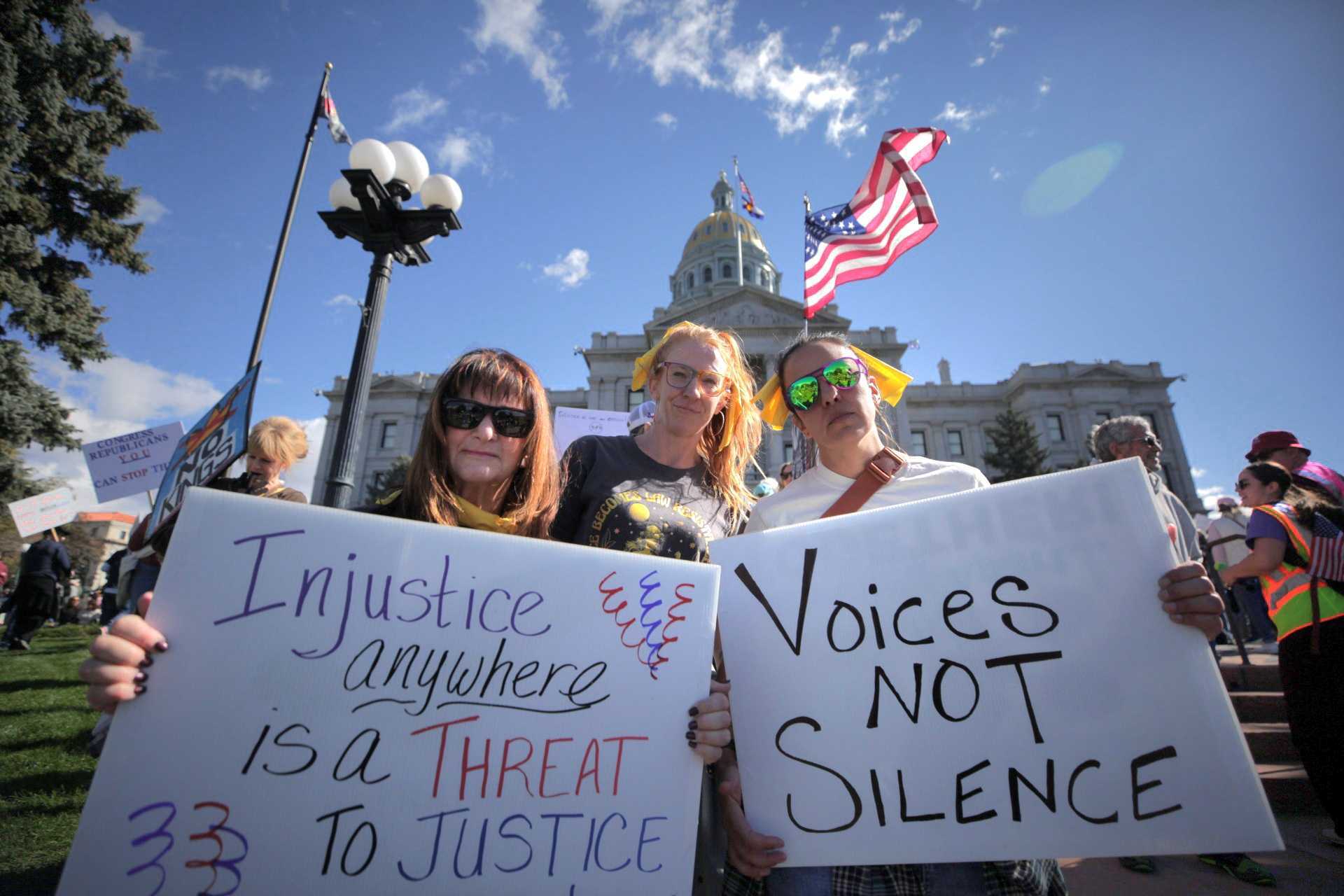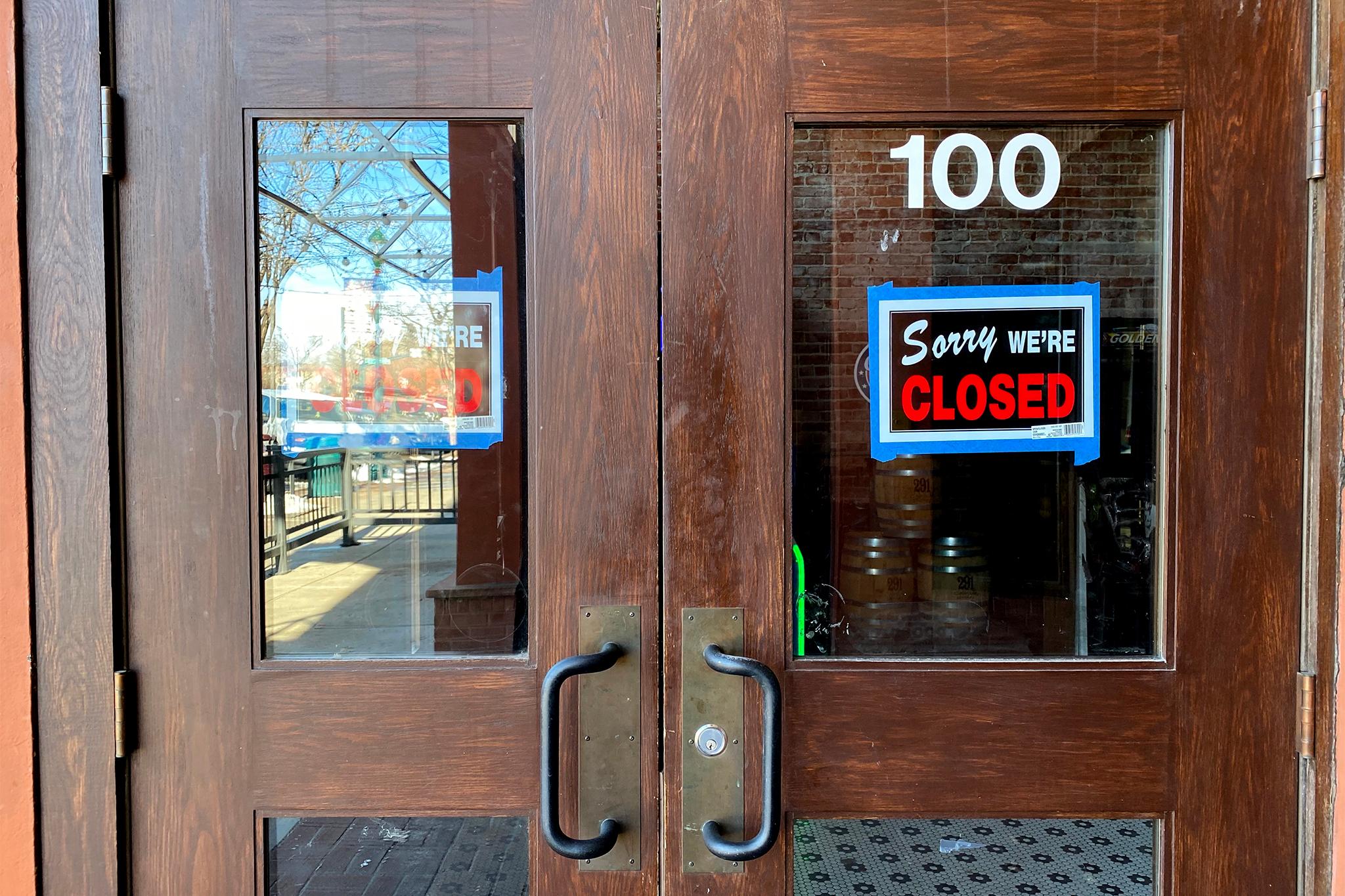
When the Dover Quartet asked Jerod Impichchaachaaha' Tate to compose a new work inspired by Native American traditions, he turned to the woodland creatures venerated by his own Chickasaw Nation. The results, Woodland Songs, is the title work on the Dover's new album.
"I just wanted to have a blast making character sketches of five of our woodland animals," Tate tells Morning Edition host Leila Fadel. "I take a lot of artistic license to ... be very impressionistic and abstract, or very overt about the tunes themselves."
Chickasaw people are originally from the southeastern United States and their family clans are named after woodland creatures. Each of the five movements of Tate's work is imbued with the spirit of the corresponding animal — frenetic like the squirrel, staccato like the woodpecker, graceful like the deer, shimmering like the fish and mischievous like the raccoon, which is Tate's own family clan.
When it came to interpreting his composition, Tate, whose works have been performed around the world, had blunt instructions for the members of the quartet: "Treat this music like I'm dead, because then you're free," he told them. He wanted the musicians to bring their own flavor to what was already written on the page.
Dover cellist Camden Shaw describes working with Tate as a "great balance of being very demanding for what he wanted to hear, but also allowing us to be ourselves and feeling like we're all on the same team."
The quartet also commissioned from Tate an arrangement of Rattle Songs. The vocal pieces, accompanied by turtle shell rattles, were composed by Tuscarora/Taino singer-songwriter Pura Fé, a founding member of the women's a cappella group Ulali, which combines traditional Native American tunes with more contemporary styles. Tate described his own arrangement as "layers upon layers of both tradition and modernization."

The album closes with Antonín Dvořák's String Quartet No. 12, Op.96. It's nicknamed the "The American" because the Czech composer was inspired by Black spirituals and native American melodies during his stay in Iowa in the summer of 1893.
Shaw says the three featured works represent different takes on an American sound. "The desire really at the core of this album was to explore connections between things musically that have existed on this continent for a very, very long time."
Tate, now 57, thinks about shifting perspectives on time, tradition and modernity. "As I've grown older, I have embraced the idea that time just doesn't exist. Everything is modern and always was modern," he observes. "The same artists and conversations we have now, all of our ancestors had thousands of years ago. So Dvořák is just as modern as me."
The broadcast version of this story was produced by Barry Gordemer. The digital version was edited by Tom Huizenga.
Copyright © 2025 NPR
Transcript:
LEILA FADEL, HOST:
The Grammy-nominated Dover Quartet has a new album. It's called "Woodland Songs" and is inspired by Native American traditions, like the "American Quartet." It's a beloved piece by 19th century Czech-born composer Antonin Dvorak.
(SOUNDBITE OF PERFORMANCE OF DVORAK'S "STRING QUARTET NO. 12 IN F MAJOR, OP. 96, B. 179, AMERICAN QUARTET")
FADEL: But they also teamed up with Chickasaw composer Jerod Impichchaachaaha' Tate to do something new. He composed a suite inspired by animals and adapted songs by Ulali, an Indigenous a cappella group.
(SOUNDBITE OF DOVER QUARTET PERFORMANCE OF PURA FE'S "RATTLE SONGS")
FADEL: I spoke about the project with Dover Quartet cellist Camden Shaw, along with composer Jerod Impichchaachaaha' Tate. I started by asking Tate why his original compositions are named for animals.
JEROD IMPICHCHAACHAAHA' TATE: The Chickasaw people are originally from a woodland culture in the northern Mississippi area. And we have tons of animal stories, and the most famous are the stories about the tortoise and the hare that have become very much a part of American vernacular.
FADEL: Yes.
TATE: I love...
FADEL: But not with the credit of where that story came from.
TATE: Right. And a lot of people are not familiar with that. A lot of those stories are directly from Muskogean people, southeastern people from the Choctaw, Chickasaw, Cherokee, Seminole and Creek tribes. And so I just wanted to go ahead and just have a blast making character sketches of five of our woodland animals.
(SOUNDBITE OF DOVER QUARTET PERFORMANCE OF TATE'S "ABOKKOLI' TALOOWA': NO. 5, FANI' (SQUIRREL)")
FADEL: They sound like the animals, right? Graceful like the deer, staccato like the woodpecker, frenetic like the squirrel.
(SOUNDBITE OF DOVER QUARTET PERFORMANCE OF TATE'S "ABOKKOLI' TALOOWA': NO. 5, FANI' (SQUIRREL)")
FADEL: But the raccoon, I understand that holds a special significance for your family.
TATE: Well, yes, my family is the raccoon clan. So traditionally, our families are divided into clans, and they're named after woodland animals. And so the entire work ends with the raccoon clan.
(SOUNDBITE OF DOVER QUARTET PERFORMANCE OF TATE'S "ABOKKOLI' TALOOWA': NO. 5, SHAWI' (RACCOON)")
TATE: Ulali is actually a woodland culture as well. And in fact, Dvorak's music was very inspired by woodland people as well. So it's a really big through line on all of this music.
FADEL: Camden, do you think that people understand the inspiration for Dvorak's piece?
CAMDEN SHAW: I think too often it's forgotten, to be honest. I mean, the Dvorak "American Quartet" has become one of the most beloved and most performed quartets in the repertoire, but it's also important to remember just how much inspiration was taken from Native melodies for Dvorak as well. And actually, in his "Viola Quintet," one of the other chamber pieces that he composed while living in Iowa, it's so omnipresent in that work. And actually, he had hoped that the slow movement of that would've been adopted as the American national anthem. And it's amazing to remind ourselves of that history with that piece of music.
FADEL: When you think about what is American and what this music represents, what is the album sort of meant to do?
SHAW: I love that question. Actually, it reminds me of something, Jerod, you said - which really touched me - that all people come from ancient cultures, that there are these long threads of connection in art and thinking and feeling that go way back for all of us. And the desire really as the core of this album was to explore connections between things musically that have existed on this continent for a very, very long time. You can hear references to, like, bluegrass styles...
FADEL: Yeah.
SHAW: ...And almost, like, Appalachian folk music as well. So there's this beautiful just tapestry of influences that exist.
(SOUNDBITE OF PERFORMANCE OF DVORAK'S "STRING QUARTET NO. 12 IN F MAJOR, OP. 96, B. 179, AMERICAN QUARTET")
FADEL: Now, Ulali's music - Jerod, you take vocal and percussion music and adapt it for a quartet?
TATE: Yeah. What I did is I took artistic liberties. And the thing is, what's really fun about it is that that's what Pura Fe did herself when she was composing the work for a vocal trio.
FADEL: And that's the vocalist.
TATE: Yeah. I mean, she was compiling melodies that she had learned from her friends across North America. And so then I got to add another layer for a string quartet. So it's layers upon layers of both tradition and modernization. And you know what? That happens all over the world, and it's happened for thousands and thousands of years.
(SOUNDBITE OF DOVER QUARTET PERFORMANCE OF PURA FE'S "RATTLE SONGS")
FADEL: Camden, what was it like for the quartet to play these pieces? I mean, what was unique or different or maybe the same compared to the romantic repertoire you perform most often?
SHAW: I mean, right away, when we met Jerod for the first time, you said, oh, just treat this music like I'm dead. You know, it's all on the page. Like, do...
FADEL: Oh.
SHAW: Pretend it's like Beethoven. Like, it's all there.
FADEL: (Laughter).
SHAW: And also, then there's that feeling that it's OK to be yourself and to put yourself into it. And, of course, Beethoven was famous for frustrating the musicians when they couldn't do what he wanted to hear. But I think, you know, Jerod was this great balance of, like, being very demanding for what he wanted to hear, but also, again, allowing us to be ourselves.
TATE: If I may add, you know...
FADEL: Yeah.
TATE: ...I'm the kind of composer who really likes to be hands off because I'm a pianist myself.
FADEL: Really? I'm so controlling. I don't...
TATE: Oh, no, no.
FADEL: (Laughter).
TATE: That's why I say, act like I'm dead, like, because then you're free.
FADEL: And what was it like when you finally did hear them play?
TATE: Well, this is the Dover String Quartet.
FADEL: Yeah.
TATE: It was amazing. Just absolutely unbelievable. And I just - that's not me. That's them completely internalizing the music like they should and have the freedom to do. And they've totally made it their work. It's incredible.
(SOUNDBITE OF DOVER QUARTET PERFORMANCE OF TATE'S "ABOKKOLI' TALOOWA': NO. 3, ISSI' (DEER)")
TATE: We're all here because of the thousands of years of the work that our ancestors have put in...
FADEL: Yeah.
TATE: ...For us to be here. Like, for instance, my ancestors walked 800 miles in mud to Oklahoma so that I could compose operas about them. We're here together, and now we have the opportunity to make this beautiful. So for me, this is a really great representation of opportunity.
FADEL: That's composer Jerod Impichchaachaaha' Tate and cellist Camden Shaw. Tate's "Woodland Songs" were commissioned for the Dover Quartet's latest album of the same name. Thank you both so much.
TATE: (Non-English language spoken).
(SOUNDBITE OF DOVER QUARTET PERFORMANCE OF TATE'S "ABOKKOLI' TALOOWA': NO. 2, BAKBAK (WOODPECKER)")









